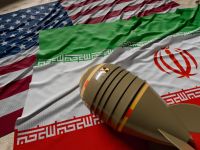"Jordan Telecom is the model of success for privatization in Jordan," said Shabib Ammari, chairman of the board, during his closing remarks at the Convergence 2001 Forum on Thursday. “Believe me when I say monopoly and exclusivity are already behind us," said a confident Ammari and adding, "the process of privatization is working."
One year after privatization, Jordan Telecom basks in the success of its successful and on-time launch of the new ADSL high-speed data network. They have also kept the promises made at the Dead Sea IT Forum in March 2000, claim company officials.
Despite the fears and the risk, said Ammari, he made public commitments for his company under the watchful gaze of King Abdullah, who took personal interest in the outcome of the project. Ammari says three commitments were made at the Dead Sea Forum and Jordan Telecom has delivered on all of these.
First was the promise to become a customer-oriented company, "and now we are market led, a business concern and not a government bureau." Second, "Mobile Com is using state-of-the-art technology and there is none more advanced." Thirdly, "we said we'd offer a highly competitive package of tariffs and reductions," said Ammari
.
In relation to this, he announced that in April every governorate would pay 10 fils a minute for local calls, the same rates that benefit Amman, and will no longer be penalized for being secondary cities.
However, Jordan Telecom has faced recent press criticism, particularly over perceived price-hikes since its privatization. Ammari used the occasion to address these critics. He reacted to recent complaints that Jordan Telecom's price hikes were unreasonable and dismissed this as a media campaign by skeptics.
While he acknowledged the monthly subscription fee had risen by 550 fils, installation fees and international call rates had dropped by 20 percent, and calls to Palestine have seen a reduction double that to other countries, said Ammari.
"With the new tariff reductions on fixed land lines we expect to lose five million Jordanian dinars in 2001, why would we do this? Because we're preparing for competition," he told the morning press conference. As for the end of free minutes when calling, "this was a decision taken by government three years ago before privatization."
So while there was one increase in fees, Ammari says there were "three drastic reductions."
"Why should this subscription hike raise hell? That's not fair, we are rebalancing an unbalanced tariff structure when new management took over."
Finally, Ammari used the occasion to stress the Jordanian nature of his company by clarifying that it is not just a France Telecom side-project. "This company belongs to Jordan," he said, and he praised the many Jordanians who had worked on the project.
However, he did acknowledge the importance and value of the France Telecom partnership.
"France Telecom is in Jordan not only to make money. It is committed to the growth of the Jordanian economy and committed to spreading Internet culture," he said. France Telecom owns a 40 percent stake in Jordan Telecom and directs key management positions in the company. — ( Jordan Times )
By Owen Clegg
© 2001 Mena Report (www.menareport.com)







